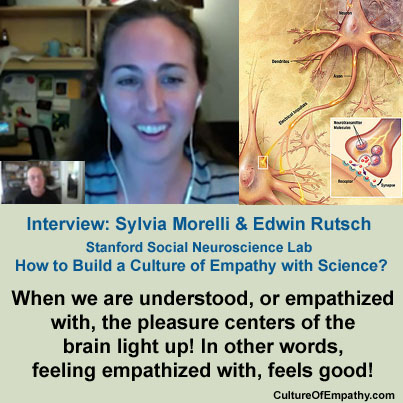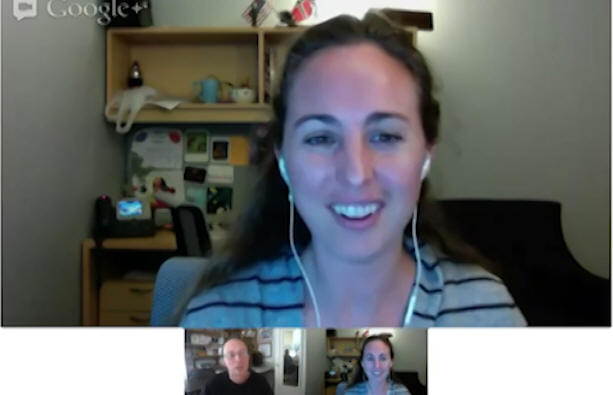|
|
|
Culture of Empathy Builder: Sylvia Morelli
Sylvia Morelli & Edwin Rutsch: How to Build a Culture of Empathy
"Behavioral research has demonstrated that feeling understood
by others enhances social closeness and intimacy, as well as subjective
well-being. In contrast, feeling misunderstood can be harmful to social
relationships, leading to loneliness and isolation. However, it is still
unclear why and how felt understanding exerts such a powerful impact on
both interpersonal and
In an initial behavioral session, 31 UCLA undergraduates were videotaped as they described their four most positive and four most negative autobiographical events. In addition, participants were asked for their consent to show other UCLA students their videos. A subset of 19 participants returned for an fMRI scanning session approximately one week later. "
"Although many studies have examined the neural basis of experiencing empathy, relatively little is known about how empathic processes are affected by different attentional conditions. Thus, we examined whether instructions to empathize might amplify responses in empathy-related regions and whether cognitive load would diminish the involvement of these regions. Thirty-two participants completed a functional magnetic resonance imaging session assessing empathic responses to individuals experiencing happy, sad, and anxious ..." "Past research suggests that empathy may occur instantaneously and automatically when we recognize another’s emotional state (Preston and De Waal, 2002), even if we are cognitively busy. However, other research suggests that empathy is disrupted when we are distracted and cognitively occupied (Gu and Han, 2007)."
2011/3/1 - An fMRI investigation of empathy for ‘social pain’and subsequent prosocial behavior "Despite empathy's importance for promoting social interactions, neuroimaging research has largely overlooked empathy during social experiences. Here, we examined neural activity during empathy for social exclusion and assessed how empathy-related neural processes might relate to subsequent prosocial behavior toward the excluded victim. During an fMRI scan, participants observed one person being excluded by two others, and afterwards sent emails to each of these 'people.'Later, a group of raters assessed how prosocial (eg, ..."
|
||||||||||||
|
||||









